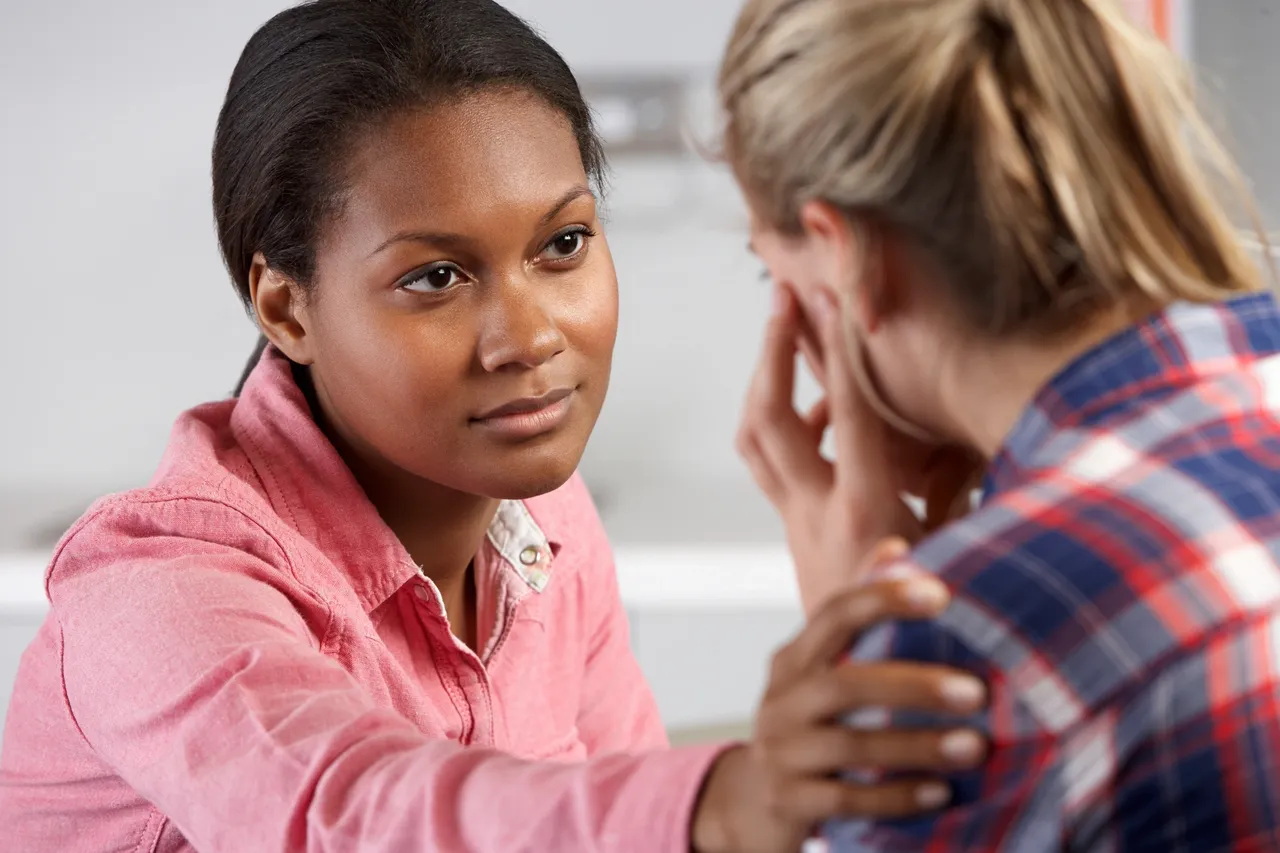Today’s teenagers face unprecedented mental health challenges that can derail their development and future well-being. Recent studies reveal alarming statistics: 1 in 5 adolescents experiences severe anxiety, while depression rates have doubled in the past decade. These mental health struggles often manifest through:
- Intense emotional outbursts
- Social withdrawal
- Academic decline
- Substance abuse
- Self-destructive behaviors
When left unaddressed, these challenges can escalate into severe crises, impacting not just the teens but entire families. The ripple effects touch every aspect of life – from relationships and academic performance to physical health and future opportunities.
Troubled teen programs have emerged as a vital lifeline for families navigating these difficult waters. These specialized treatment environments offer structured support systems designed to transform crisis into opportunity. Through comprehensive care approaches, these programs help teens:
- Develop healthy coping mechanisms
- Build emotional resilience
- Restore family relationships
- Acquire essential life skills
- Regain academic focus
At Build Bright Care Group, we’ve witnessed countless teens transform their struggles into stepping stones toward lasting confidence and stability. Our evidence-based approach combines therapeutic intervention with personalized support, creating a foundation for sustainable healing and growth.
The journey from crisis to confidence isn’t simple. However, with proper support and guidance, troubled teens can discover their inner strength and rebuild their lives. Expert tips for parents on helping teens cope with anxiety can be beneficial in this journey. If you’re considering seeking professional help for your teen, understanding our admissions process can provide clarity and ease your concerns.
Understanding Troubled Teen Programs
Troubled teen programs offer specialized care through two primary settings: therapeutic boarding schools and residential treatment centers. These facilities create structured environments where adolescents receive comprehensive support for their mental health and behavioral challenges.
Therapeutic Boarding Schools
Therapeutic Boarding Schools combine academic education with therapeutic interventions. Students attend regular classes while participating in:
- Individual therapy sessions
- Group counseling
- Experiential learning activities
- Life skills workshops
Residential Treatment Centers
Residential Treatment Centers, such as those offered by Build Bright Care Group, provide intensive therapeutic care in a controlled environment. These facilities feature:
- 24/7 professional supervision
- Crisis intervention services
- Medication management
- Behavioral modification programs
Both settings maintain structured daily schedules that help teens develop:
- Time management skills
- Personal responsibility
- Healthy coping mechanisms
- Social interaction abilities
Programs address various challenges including:
- Substance abuse issues
- Emotional regulation difficulties
- Academic struggles
- Behavioral problems
- Mental health concerns
The supportive environment allows teens to focus on healing while developing essential life skills. Staff members work closely with each teen to create individualized treatment plans that evolve as progress occurs. These programs integrate academic studies with therapeutic interventions, ensuring students maintain their educational progress while working through personal challenges.
Build Bright Care Group’s California facilities provide these comprehensive services, helping teens build a foundation for lasting recovery through evidence-based practices and personalized care approaches. We also offer autism treatment for teens and cater to various behavioral issues in teens using a customized curriculum for success.
Common Mental Health Challenges in Teens Addressed by These Programs
Troubled teen programs specialize in addressing severe mental health challenges that can significantly impact adolescent development. These programs work with teens experiencing:
- Self-harm behaviors: Including cutting, burning, or other forms of self-injury
- Suicidal thoughts: Ranging from passive ideation to active planning
- Trauma-related disorders: Stemming from abuse, neglect, or significant life events
- Behavioral difficulties: Such as aggression, defiance, or running away
Parents often struggle to distinguish between normal teenage mood fluctuations and serious mental health concerns. Here are key warning signs that indicate a need for professional intervention:
- Sudden personality changes lasting more than 2 weeks
- Intense, prolonged emotional outbursts
- Withdrawal from previously enjoyed activities
- Significant changes in sleeping or eating patterns
- Declining academic performance
- Substance use as a coping mechanism
These signs, particularly when occurring together, signal that your teen might benefit from the structured support of a troubled teen program. For instance, residential treatment has been shown to be effective in saving teens struggling with suicidal thoughts. Professional assessment can determine the appropriate level of care needed for your child’s specific situation.
Evidence-Based Therapeutic Approaches Used in Troubled Teen Programs
Troubled teen programs implement proven therapeutic methods to support adolescent healing. These approaches are backed by research and have shown positive outcomes in helping teenagers overcome their challenges.
1. Dialectical Behavior Therapy (DBT)
Dialectical Behavior Therapy (DBT) teaches teens essential skills:
- Mindfulness practices for present-moment awareness
- Distress tolerance techniques for crisis management
- Emotional regulation strategies for mood control
- Interpersonal effectiveness for healthy relationships
2. Cognitive Behavioral Therapy (CBT)
Cognitive Behavioral Therapy (CBT) helps teens identify and reshape negative thought patterns. Through CBT, adolescents learn to:
- Challenge self-defeating beliefs
- Develop problem-solving skills
- Create positive coping mechanisms
- Build resilience against future challenges
3. Family therapy
Family therapy serves as a crucial component of the healing journey. Parents and siblings participate in:
- Weekly therapy sessions with their teen
- Communication workshops
- Conflict resolution training
- Parent education programs
These therapeutic approaches work together to create lasting positive changes. Licensed therapists customize treatment plans based on each teen’s specific needs, ensuring the most effective combination of these evidence-based methods.
Holistic Care Components Supporting Long-Term Healing in Troubled Teen Programs
Successful teen mental health treatment requires a comprehensive approach that addresses each individual’s unique circumstances and needs. Troubled teen programs implement personalized treatment plans built on thorough psychological evaluations and psychiatric consultations. These assessments help identify specific challenges, triggers, and strengths that shape the healing journey.
Key components of individualized treatment plans include:
- Psychological Evaluations
- Cognitive function assessment
- Personality testing
- Behavioral pattern analysis
- Trauma screening
- Medical Integration
- Genomic testing for medication compatibility
- Comprehensive nutritional assessments
- Sleep pattern evaluation
- Physical health monitoring
The integration of medical assessments provides crucial insights into biological factors affecting mental health. Genomic analysis helps determine the most effective medications with minimal side effects, while nutritional assessments guide dietary recommendations that support brain function and emotional stability.
Programs utilize these comprehensive evaluations to create dynamic treatment plans that evolve with each teen’s progress. Regular reassessments ensure the continued effectiveness of therapeutic interventions and allow for timely adjustments based on individual responses to treatment.
This holistic approach extends beyond traditional therapy by incorporating:
- Mindfulness and meditation practices
- Art and music therapy options
- Physical exercise programs
- Life skills development
- Academic support services
Each element works together to create a supportive environment that promotes lasting healing and personal growth.
Family Involvement in Troubled Teen Programs: Key to Successful Outcomes
Family involvement is a crucial part of successful teen treatment programs. Regular family therapy sessions create a connection between residential care and home life, allowing parents to understand and support their teen’s healing journey.
These structured sessions help families:
- Learn effective communication strategies
- Address underlying family dynamics
- Practice conflict resolution skills
- Build trust and emotional connections
- Understand their teen’s treatment progress
Quality Standards Ensuring Effective Care Delivery in Troubled Teen Programs
Accreditation from recognized bodies serves as a crucial benchmark for quality care in troubled teen programs. The Joint Commission accreditation represents the gold standard in healthcare certification, ensuring programs meet rigorous safety and treatment protocols.
Accredited programs must demonstrate:
- Regular safety audits and compliance checks
- Qualified staff with appropriate credentials
- Evidence-based treatment protocols
- Clear documentation of patient care
- Ethical practices in all operations
Programs holding Joint Commission accreditation undergo thorough evaluations every three years, with surprise inspections between cycles. This continuous oversight ensures maintained quality standards and pushes programs to evolve their practices based on the latest research and best practices in adolescent mental health care.
In addition to meeting accreditation standards, it’s essential for troubled teen programs to follow comprehensive guidelines that address various aspects of healthcare delivery. These include specific recommendations for health care delivery systems, which can further enhance the effectiveness of care provided.
Build Bright Care Group maintains active Joint Commission accreditation, reflecting our commitment to delivering high-quality, evidence-based treatment for teens ages 12-17.
Building Confidence Through Structured Support and Life Skills Development in Troubled Teen Programs
Structured daily routines in troubled teen programs create a foundation for lasting personal growth. These programs implement specific schedules that include:
- Morning wellness activities
- Regular meal times
- Designated study periods
- Group therapy sessions
- Personal reflection time
- Skill-building workshops
Teens learn essential life skills through hands-on experiences:
- Personal Organization: Managing their living spaces and personal belongings
- Time Management: Following schedules and meeting deadlines
- Self-Care: Maintaining hygiene and healthy habits
- Social Skills: Participating in group activities and community projects
The predictable environment helps teens develop internal discipline and responsibility. As they master these daily tasks, they gain confidence in their abilities to handle life’s challenges independently. This structured approach creates positive habits that extend beyond the program, supporting long-term success in school, relationships, and future careers.
Conclusion
The journey from crisis to confidence requires a combination of dedicated support, professional guidance, and a comprehensive treatment approach. Troubled teen programs are crucial for families dealing with adolescent mental health challenges, providing structured environments where healing and growth can occur.
Among these programs, Build Bright Care Group stands out as a beacon of hope. we specialize in residential mental health care for adolescents aged 12-17, using evidence-based therapies, personalized treatment plans, and family-centered approaches to create lasting positive change.
However, your teen’s path to mental wellness needs more than just crisis intervention. Build Bright Care Group’s comprehensive treatment programs aim to tackle various issues such as:
- Emotional regulation challenges
- Behavioral difficulties
- Family dynamics
- Academic struggles
- Life skills development
Taking the step to seek help is the first crucial move towards transformation. With structured support, therapeutic interventions, and dedicated care teams, troubled teen programs create safe spaces where adolescents can rebuild their confidence and acquire essential life skills.
If you’re considering professional help for your teen’s mental health journey, look no further than Build Bright Care Group’s compassionate treatment center. We provide the structured, nurturing environment your adolescent needs to transition from crisis to confidence, laying the groundwork for long-term healing and success. For more information about our services or to start the process of getting help for your child, please visit our contact page.












